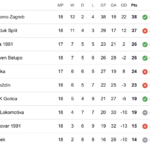New tax laws could be adopted by the end of the year.
A working group for tax reform has already been founded, has about twenty members and is made up of experts, tax advisers, representatives of the Croatian Chamber of Economy, Croatian Employers Association and the Finance Ministry, reports Večernji List on April 11, 2016.
By the end of the month, they should prepare an analysis of the current tax system with comments. The comprehensive tax reform should be ready by the summer so that a public debate can start and that the legislation can be submitted to parliament. “There have been many speculations lately, which sends a bad message. We are not even close to specific proposals. The focus will be on the sustainability of the tax system. We do not intend to devote ourselves to separate taxes, but to look at the system as a whole. It needs to be simplified and be more competitive”, said Finance Minister Zdravko Marić, who did not want to reveal the names of members of the working group so they could avoid additional pressure.
In addition to this working group, next week another team should be formed which will look at the possible changes to the so-called communal utility fee, which is a Croatian version of property taxes. The law has been amended about thirty times, so the Ministry concluded it would be best to prepare a new law.
The final version of the law will depend on the political decision whether to introduce property taxes. Prime Minister Orešković reportedly supports such a tax, but since its implementation would take a lot of time, it is possible that in the first phase utility fee law will be changed. Under current law, the fees and numerous exemptions are determined at a local government unit level. However, now the idea is to equalize criteria with a new law.
Ante Žigman, a counsellor at the Croatian National Bank and a member of the tax council, said that tax system reform should be focused on principles of equality and efficiency. “The law must be simple and focused on consumption”, said Žigman, who is not a member of the working group. He added that Croatia should have no more than two VAT rates (now there are three rates – 5, 13 and 25 percent), and he would also reduce the pressure of the income tax on employees whom Croatia needs most, and these are people who pay 40 percent payroll taxes on earnings above 13,200 kuna a month.
Finance Minister also recently said that there is room for change in that area, either through the elimination of the top income tax rate or through increasing the threshold for the top tax bracket. “I would be very careful with property tax because it is a sensitive social issue”, said Žigman.







